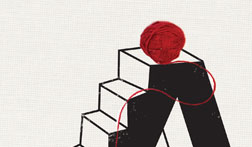Submitted by Denitsa on
ECSR (CROATIA)
Title:
International Centre for the Legal Protection of Human Rights (INTERIGHTS) v. Croatia
Court:
European Committee of Social Rights
Citation:
Complaint No. 45/2007
Date:
30 March 2009
Instrument(s) Cited:
European Social Charter: Article 11
Case Summary:
Background:
The International Centre for the Legal Protection of Human Rights (INTERIGHTS) filed a complaint alleging that the sexual and reproductive health education provided in Croatian schools is so insufficient as to violate the obligation to provide comprehensive and adequate sexual and reproductive health education under the European Social Charter. INTERIGHTS alleged that the curriculum included content that was scientifically inaccurate, gender stereotyped or outright discriminatory on grounds of sexuality and/or family status, and argued that it, therefore, violates the state’s obligation under article 11(2) of the Charter to take appropriate measures to provide advisory and educational facilities for the promotion of health and the encouragement of individual responsibility in matters of health.
Issue and resolution:
Sexual education. Whether the quality of sexual education provided to children in schools was so unsatisfactory as to violate children’s right to protection of health. The Committee decided that there was indeed a violation of Article 11(2) in so far as the curriculum’s content was discriminatory towards homosexual relationships.
Court reasoning:
Although the total amount of time dedicated to sexual and reproductive health in the aggregate throughout primary and secondary education was estimated at a maximum of 42 hours provided by teachers without expertise in the field, the Committee found that the quantity and quality was not so inadequate so as to violate Article 11§2 based on statistics around (i) the use by young Croatians of contraceptives, (ii) the prevalence of sexually transmitted diseases among young Croatians and (iii) the rate of pregnancy among young Croatian women, in each case, in relation to other countries within and without the EU. However, the Committee did find that the official textbooks’ treatment of homosexual relationships as abnormal, the product of poor parenting, the prime cause of spread of sexually transmitted disease and naturally promiscuous, was discriminatory and thus in violation of Article 11(2) in light of the non-discrimination clause of the preamble. The Committee noted that sex education should not be used “as a tool for reinforcing demeaning stereotypes and perpetuating forms of prejudice which contribute to the social exclusion of historically marginalised groups and others that face embedded discrimination and other forms of social disadvantage.”
Impact:
Croatia withdrew the textbook as a result of the Committee’s findings, however, NGOs in the country still report similar problems with other textbooks.
Notes:
For more information on children’s right to freedom of expression and access to information, including a selection of case law, please see CRIN’s campaign ‘Protect children, end censorship’.
Link to Full Judgment:
http://hudoc.esc.coe.int/eng?i=cc-45-2007-dmerits-en
This case summary is provided by the Child Rights International Network for educational and informational purposes only and should not be construed as legal advice.

